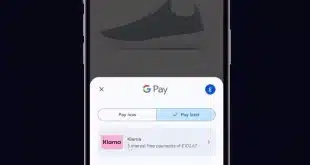A new payment system called BillMyParents debuted Monday that aims to tap an estimated $40 billion in potential online spending by teens and preteens, or “tweens.” But BillMyParents' success depends not just on technology, but also on the receptiveness of parents to receive e-mails or text messages from their progeny asking for permission to spend. Jim Collas, president and chief executive of BillMyParents' developer, Socialwise Inc., tells Digital Transactions News that the goal is attainable. “We have a vision of being the predominant youth payment system,” he says. Socialwise says that out of the more than $132 billion spent annually by youth, $40 billion is spent offline on products researched online. Lack of a credit card was cited by 40% of teens as the reason that they don't buy online, Socialwise said in a news release that cited a 2007 Harris Interactive survey. San Diego-based Socialwise, a startup funded by public and private capital, aims to convert this unmet demand into online orders. And like tweens and teenagers, its fledgling system is a work in progress. In order to provide a wide menu of goods at the outset, BillMyParents has become a so-called associate of Amazon.com Inc. The Amazon Payments platform powers the BillMyParents shopping site, BMPshopping.com, which gives youth access to the 1 million-plus items on Amazon.com, Collas says. The parent first goes through a simple registration process that includes listing each child who will use the site and providing his credit card number to Amazon Payments. Parents can adjust settings, such as the number of purchase requests allowed per child. They also can log in on a password-protected page to see a child's transaction history. A youth using the BMP shopping site sees a version of Amazon.com, but each item has only a “Bill My Parents” button. Clicking it enables the would-be buyer to write a purchase request to be sent via e-mail or text message to his parent or other registered “giver.” The recipient clicks on check boxes to approve or deny the request or send a message back to the youth. If the parent approves, he goes through the Checkout by Amazon process. The child never gets access to the parent's card information. Socialwise will generate revenue by charging merchants 3% to 5% of the purchase price based on volume under a pricing plan similar to PayPal's, Collas says. Socialwise has related initiatives under development. The company is working with online gaming and entertainment sites popular with teenagers, including Artix Entertainment, Habbo, and RockYou! Using BillMyParents, a teen without a credit card who wants to play a game, for instance, could buy virtual currency or the needed digital tools or weapons. Also in the works are e-wallets through the big social-network sites Facebook and MySpace, where teens will be able to show each other what they bought, and a prepaid MasterCard offering in partnership with Chattanooga, Tenn.-based program provider TransCard LLC. Socialwise also is working with an unidentified independent sales organization to add direct Visa/MasterCard payment options, according to Collas. Older youth might chafe at having to request parental permission for online purchases, according to Red Gillen, an e-commerce researcher with Boston-based Celent LLC. “What BillMyParents is trying to offer [is] a solution that addresses parents' concerns about the openness of e-commerce,” Gillen says via e-mail. “Although this is a sound objective in principle, it will run up against the reality of young people wishing to assert themselves as individuals and gaining independence from their parents.” Preteens are more likely to go along with the permission aspect more than teenagers, who might be more receptive to using a debit card, he adds. Collas says that Socialwise surveyed parents about BillMyParents, and they liked what they saw. “The focus groups have been phenomenally positive,” he says. He also says that “as soon as the parent hits the Web site, all of our messaging is on making the parent comfortable.”
Check Also
Fiserv Launches INDX for Real Time Settlement of Digital Assets in U.S. Dollars
Fiserv Inc. has launched INDX, a real-time cash-settlement platform that enables digital-asset companies to store …





